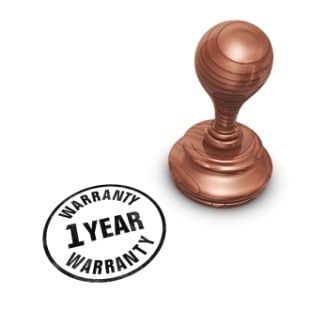Is an extended warranty really worth it?
If you buy a tablet, a laptop or another electronic gift as a holiday gift, you’ll more than likely face the dreaded extended-warranty pitch. You’ll be asked whether you want to plunk down several $10 bills to protect the gadget if it needs to be repaired or replaced and the manufacturer’s warranty already has expired.
But what should your answer be? Is this type of insurance worth it? Experts suggest weighing four things before deciding whether an extended warranty is right for you.
1. How much did you pay for the item?
“As a rule of thumb, do not buy extended warranties on items under $100,” says Joe Silverman, CEO of New York Computer Help, a technology service business in New York City. “It doesn’t make economic sense, since as soon as you leave the store the value of your equipment has depreciated as much as 50 percent. You might as well invest the money you’d spend on the extended warranty in a replacement purchase when the time comes.”

If you buy a gadget that costs $1,000 or more, you’ll definitely want to look at extending the manufacturer’s warranty, experts say.
2. Is a manufacturer’s warranty already in place?
Extended warranties may not be necessary for laptops and some other electronics equipment, as those items typically carry a one-year manufacturer’s warranty, Silverman says.
So, what does a manufacturer’s warranty cover? Primarily manufacturing defects, according to Jon Abt, co-president of Abt Electronics in suburban Chicago. Those defects include faulty wiring or bad parts.
However, you’re probably out of luck with coverage under a manufacturer’s warranty if you drop your laptop or spill coffee on your iPad, according to Silverman. To cover such damage, Silverman says you’ll need to buy extra insurance; he suggests getting it from the manufacturer rather than the retailer.
Prices depend on the item’s original purchase price, and you may need to obtain the coverage when you initially buy the item. Dell, for instance, offers CompleteCare laptop coverage that costs about $79 for one year; it’s available only at the time of your original purchase.
3. Who’s really providing the coverage?
In many instances, retailers aren’t the ones actually offering extended warranties. They’re simply acting as middlemen — selling a warranty on behalf of a third party. This means the item requiring repair may need to be shipped elsewhere to get fixed.
“If you want an extended warranty,” Silverman says, “it’s better to cut out the middleman and deal directly with the manufacturer whenever possible and purchase additional coverage through the manufacturer.”
Abt says his business provides its own extended-warranty coverage for local purchases and fixes electronics in-house. For customers who buy electronics online, Abt’s business uses a third-party vendor for extended-warranty claims.
4. What are the alternatives?
In addition to extended-warranty coverage offered at the cash register, warranties are available from online outfits like ElectronicWarranty.com and SquareTrade.com.
Vince Tseng, vice president of marketing at SquareTrade.com, says the cost depends on the type of item covered, how much it’s worth and how long the warranty lasts. For instance, SquareTrade.com would charge nearly $140 for a three-year warranty on a MacBook priced at $999. Meanwhile, a three-year warranty for a Canon EOS 60D SLR digital camera priced at $879 would go for almost $110.
No matter what type of extended warranty you buy, Tseng recommends you:
• Seek coverage that allows a claim to be filed and tracked online and the proof of purchase for an item to be stored online.
• Check out customers’ reviews of any extended warranty you’re considering.
• Find out whether the extended-warranty provider has deadlines for how soon a damaged item must be repaired or replaced.
